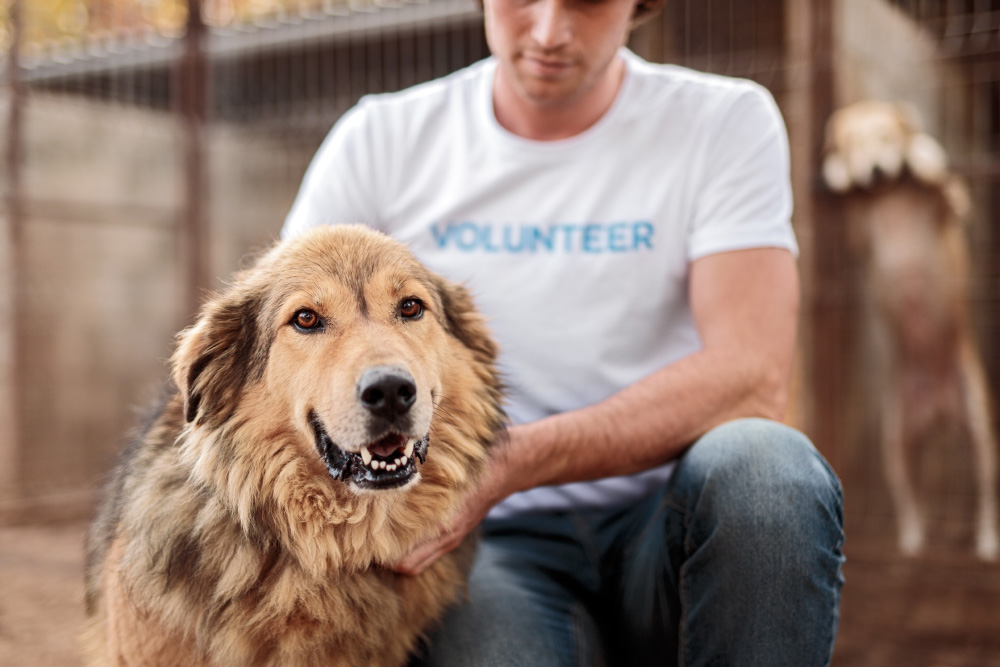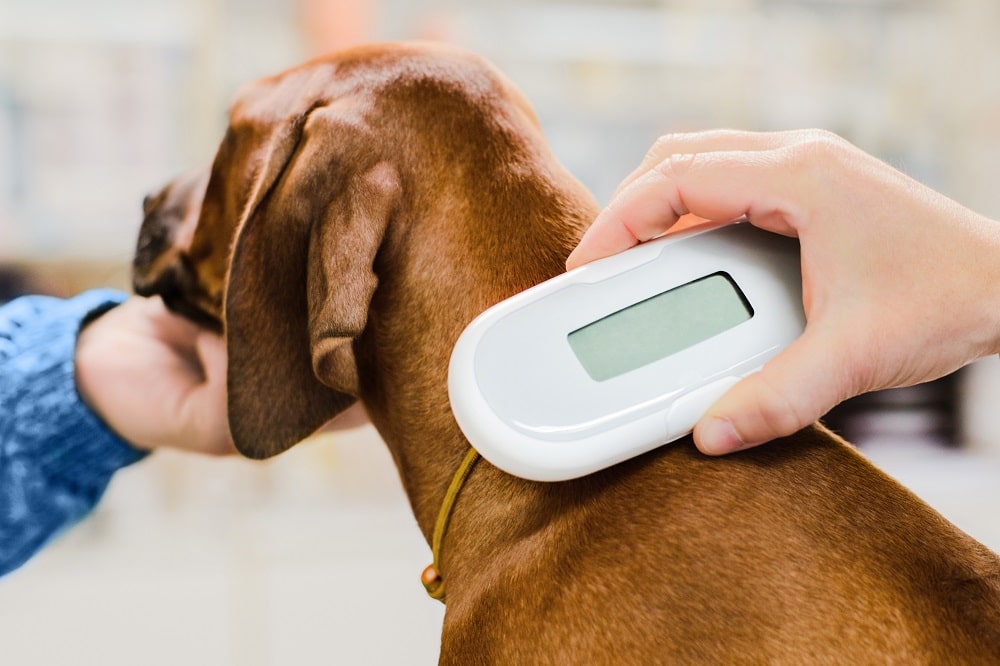Approximately 6.3 million pets end up in U.S. animal shelters annually, almost half of which are dogs, some of which are euthanized.1 Fortunately, most are adopted. However, the stress of going through the system is difficult for these animals, sometimes leaving emotional scars.
Luckily, the number of dogs and cats entering shelters has declined. Nevertheless, these animals and the people caring for them need our help. Keep reading to learn more about what you can do to help homeless dogs in your area.

The 14 Ways to Help Homeless Dogs
1. Volunteer Your Time
If you’ve owned a pet, you know it’s a big commitment. Dogs need to exercise and interact with people so that they can make good pets when they’re adopted. Running a shelter takes effort, and many operate on shoestring budgets. Volunteers shoulder much of the work, and they can always use more individuals to help with the day-to-day tasks. You’ll likely find volunteering to help these homeless dogs some of the most rewarding “work” you do.

2. Start a Wish List
Shelters and rescues often keep wish lists of the many things they need for their charges. Sometimes, it seems endless. You can make a big difference by chipping away at these lists by running a wish list drive. Many people want to help but don’t know what to do. It’s kind of like a canine bridal registry. We suggest adding items at all price points to get everyone involved!
3. Start a GoFundMe Fundraiser
Organizations like GoFundMe are a godsend for people and groups who need funds for a myriad of reasons. Setting up a campaign brings awareness to the issues that shelters and rescues face. It also allows individuals to donate toward causes they support, and helping homeless dogs couldn’t be a more worthy aim.

4. Sponsor a Shelter or Animal
Many shelters offer an alternative way to help homeless animals for those unable to adopt a pet. You can sponsor the organization or the pet! With your donation, you can contribute to the dogs’ care and ensure single or multiple dogs get everything they need.
5. Report Strays to Local Authorities
This way may seem counterintuitive, but it’s helpful in the long run. It’s more difficult for an owner to find their lost pet if they are still on the loose, and getting the dog into a shelter can reunite them quicker, especially if the dog is microchipped or has other identification information. It’s also good for the pooch since it lessens their chances of getting hit by a car or hurt by another animal.

6. Donate Used Items to a Shelter or Rescue
If you’ve lost a pet, you can help others by donating your dog’s things to a shelter. They can always use more bowls, leashes, and other items. It’s better than tossing them away when another deserving animal could use them. However, we suggest contacting the organization about the things they need before taking them there.
7. Foster a Pet
Even if you can’t commit to dog ownership for the long term, you can make a big difference in a pet’s life by fostering a dog. Let’s face it, while shelters provide a much-needed service, it’s not the ideal way for a dog to live. They are social animals that have grown to enjoy being around people, and fostering can make the transition to a forever home easier for the dog.

8. Adopt Your Next Dog
If you’re considering getting a pet, start with your local shelter or rescue group. These animals desperately need a loving home. Many organizations offer companion animals with routine vaccinations and deworming complete. Some require you to spay or neuter a pet, typically included in your agreement or the adoption fee.
9. Join the ASPCA Advocacy Brigade
The mission of the ASPCA Advocacy Brigade is awareness. Joining allows you to stay up to date with state-specific legislation that can impact pet ownership, such as breed bans. Irresponsible pet ownership is often at the core of problems like homeless dogs. While well-meaning, some legislation fails to address the real issue. The Advocacy Brigade can help you stay aware of the happenings in your state.

10. Donate Your Professional Skills
You can donate your time to shelter or rescue if you have professional skills. Desirable skills include web design, graphic design, or other technical talents. These organizations rely on the generosity of people like you who can provide services they otherwise would be unable to afford.
11. Keep Your Dog’s Microchip Info Up to Date
One study found that a whopping 35.4% of microchipped animals entering shelters had incorrect owner contact information, hampering efforts to reunite the pets and their caregivers. Do you and your pup a favor and make sure it’s up to date to avoid unnecessary hardship for your family and canine companion should they ever get lost.

12. Consider Spaying or Neutering Your Dog
We strongly urge you to discuss the matter of spaying and neutering with your vet. If there isn’t a compelling reason to forgo it, we recommend having the procedure done on your pet. After all, raising a litter of puppies is probably more challenging than you realize, and some pets will end up in unsuitable homes or will be abandoned. The more dogs that are spayed and neutered, the less likely that dogs end up on the streets.
If you need to speak with a vet but can't get to one, head over to PangoVet. It's our online service where you can talk to a vet online and get the advice you need for your dog — all at an affordable price!
13. Harness the Power of Social Media to Educate Others
Creating awareness is easier than ever with the advent of social media. Word can travel the globe in seconds—literally! It’s an opportunity to remind others about some of the points we’ve raised in this article, such as up-to-date contact information. You can also use it to spread the news about your GoFundMe campaign.

14. Participate in Fundraising Events
Many shelters run fundraising events, such as 5K runs. It’s an excellent time to dust off your running shoes and participate in the fun. You can connect with like-minded folks who also care about homeless dogs and want to do what they can to help. The organization will appreciate any money you raise to make their jobs easier.

Conclusion
Every pet deserves a home, and it’s heartbreaking to think of all the animals that don’t have a loving family to care for them. Fortunately, there are many things you can do to improve the quality of life of pets in shelters. You can also take action to keep the problem under control and prevent adding to the burden. Dogs bring us so much joy, so finding ways to help is the least we can do to ensure their safety and well-being.
- See Also: How Can I Help Dogs in Need?
Featured Image Credit: Zlatko59, Shutterstock




















